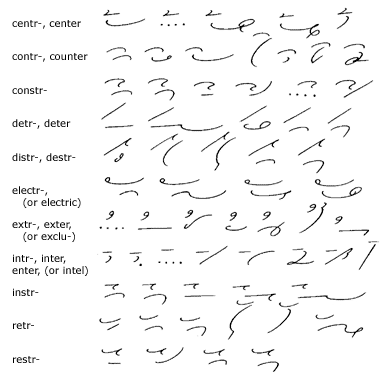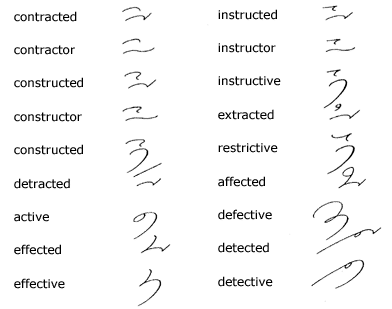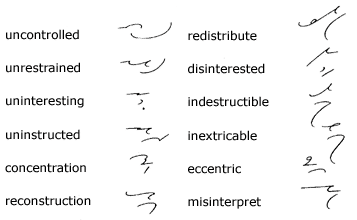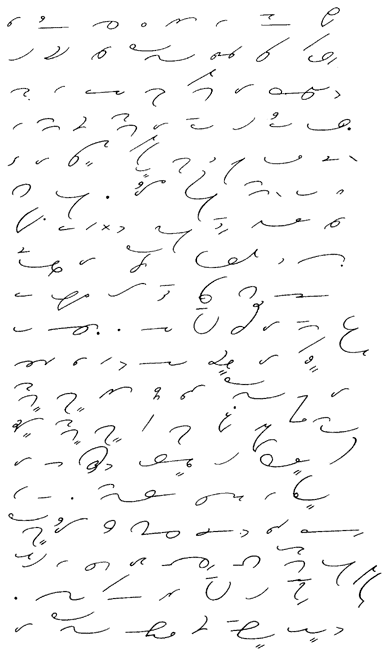| Home Reporting A Judge’s Charge Dupraw’s Notes Sklarew’s Notes Zoubek’s Notes Pre-Anniversary Description Reference Material Brief Form List Anniversary Description Reading Material Reference Material Brief Form List Most-Used Phrases Simplified Description Brief Form List Dupraw on Note Size Diamond Jubilee Description Brief Form List Expert Brief Form List Series 90 Description Brief Form List Centennial Description Brief Form List Taquigrafía Gregg Gramálogos German Gregg Manual Esperanto Gregg Manual Brief Forms Irish Gregg Manual Gregg Group Gregg Learning Forum Ms. Letha’s SH Site Shorthand³ Omniglot's Entry Wikipedia's Entry Stenospeed Dictation Practice Andrew Owen |
CHAPTER X Unit 28 Analogical Word-Beginnings—Disjoined 209. Certain prefixes or letters are disjoined to express tr and a following vowel. The prefix is placed above the line, very close to the remainder of the word.
211. In forming the derivatives of words ending in ct, as in contract, it is not necessary to disjoin to express ed, or, er, or ive. The t is omitted in the primitive form (under the rules given in Chapter VIII), and also in its derivatives:
Analogical Word-Beginnings—Compounds 212. Some very useful forms are obtained by joining simple syllable characters, such as in, un, dis, re, and non, to the signs for disjoined word-beginnings:
213. Reading and Dictation Practice
|
|
Preface About Gregg Shorthand Editor's Note A Talk with the Beginner The Alphabet Chapter I Unit 1 Unit 2 Unit 3 Chapter II Unit 4 Unit 5 Unit 6 Chapter III Unit 7 Unit 8 Unit 9 Chapter IV Unit 10 Unit 11 Unit 12 Chapter V Unit 13 Unit 14 Unit 15 Chapter VI Unit 16 Unit 17 Unit 18 Chapter VII Unit 19 Unit 20 Unit 21 Chapter VIII Unit 22 Unit 23 Unit 24 Chapter IX Unit 25 Unit 26 Unit 27 Chapter X Unit 28 Unit 29 Unit 30 Chapter XI Unit 31 Unit 32 Unit 33 Chapter XII Unit 34 Unit 35 Unit 36 |



